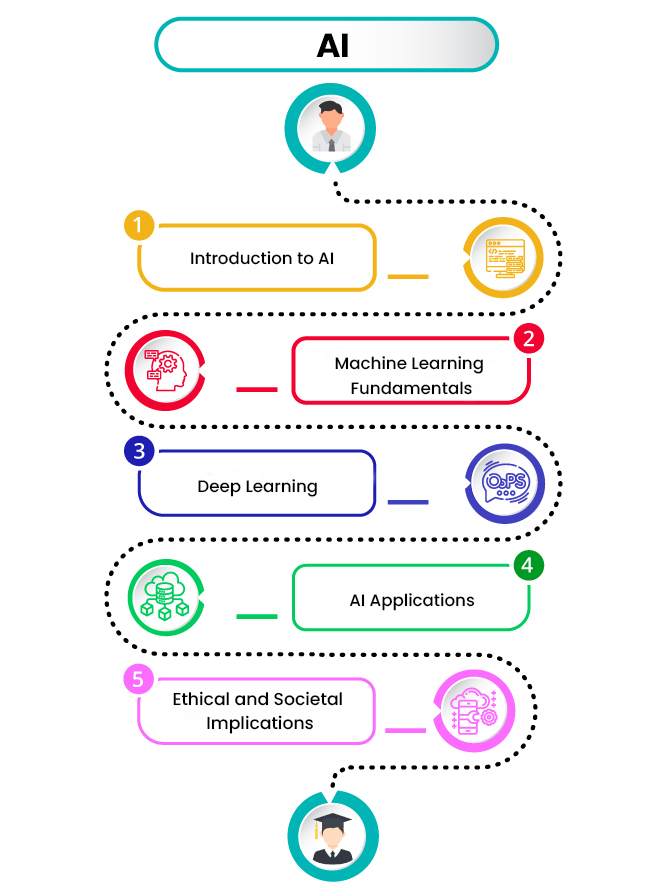Curriculum in Artificial Intelligence
Foundation of AI & ML
Python for Artificial Intelligence
Python Libraries for Artificial Intelligence
Data Management
SAS-Data Analytics
Statistical Decision Making
Predictive Analytics
Machine Learning
Artificial Intelligence
Deep Learning with Keras and TensorFlow
Advanced Deep Learning and Computer Vision
Cloud Computing and AWS
Tableau 10
Curriculum in Artificial Intelligence
Artificial Intelligence Is Preferred by Over 35% of Developers. Artificial Intelligence is the most widely used and in-demand programming language in the IT industry.
- Introduction to Data Science, AI&ML
- R Essentials
- Statistical Analysis
- Python Essentials
- Python Environment Setup
- Python Data Types
- Python Looping and Control Statements
- Object-Oriented Programming Concepts
- Database Connection
- Numpy
- Scipy
- Pandas
- MatPlot
- Data Acquisition
- Data Pre-processing and Preparation
- Data Transformation and Quality
- Handling Text Data
- Big Data Fundamentals
- Big Data Frameworks(Spark, Hadoop, NoSQL)
- SAS Introduction
- SAS Functions
- SAS Operators
- SAS Procedures
- SAS Graphs
- SAS Macros
- SAS Format
- Data Visualisation
- Sampling and Estimation
- Inferential Statistics
- Linear Regression
- Multiple Linear Regression
- Non-Linear Regression
- Forecasting Models
- ML Foundations
- Clustering
- Classification(Naive Bayes Classifier, K-Nearest Neighbors)
- Association Rule Mining
- Foundations of AI
- Convolution Neural Networks
- Recurrent Neural Networks
- Deep Learning Libraries
- Keras API
- TensorFlow
- Deep Learning Algorithms
- Distributed and Parallel Computing
- Deploying Deep Learning Models
- Reinforcement Learning
- Generating Images with Neural Style
- Object Detection through Convolutional Neural Networks
- Introduction to Cloud Computing and AWS
- Storage Volumes and Elastic Compute
- Virtual Private Cloud
- Simple Storage Services
- AWS Lambda and Amazon Machine Learning
- Introduction to Data Visualisation
- Tableau Architecture
- Working with Data Blending
- Creation of Sets
- Calculations, Expression, and Parameters
- Dashboards, Stories, and Filters
- Tableau Prep


.png)
.png)
.png)
.png)

.png)
.png)
.png)
.png)
.png)


























